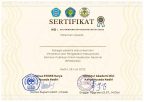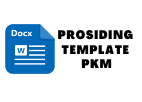The Relationship between Parity and Education Level with the Selection of Injectable Contraceptives at TPMB Reti Endang,
Keywords:
Educational Level, Parity, Injectable ContraceptiveAbstract
The injectable contraceptive is one of the most popular methods of family planning in Indonesia. Education level and parity play a significant role in the decision-making process for choosing a contraceptive method. The decision to participate in a family planning program is often driven by one’s way of thinking, opinions, and the belief that the number of children already meets their desires. The purpose of this study is to examine the relationship between education level and parity with the choice of injectable contraceptive at PMB Reti Endang in Sanankulon District, Blitar Regency
It is a quantitative approach with a correlational design and cross-sectional method. The independent variables in this study are education level and parity, while the dependent variable is the choice of injectable contraceptive. The population for this study consists of 38 injectable contraceptive acceptors at PMB Reti Endang, with 35 respondents selected using simple random sampling. The research was conducted from August 10 to 31, 2024, using a questionnaire as the instrument and analyzing data with chi-square.
The results show that 26 respondents (74.3%) have a secondary education level, 24 respondents (68.6%) have a moderate parity, and 20 respondents (57.1%) use the 3-month injectable contraceptive. The chi-square test results indicate a moderate relationship between education level and the choice of injectable contraceptive (p-value 0.030 and r 0.485) and a moderate relationship between parity and the choice of injectable contraceptive (p-value 0.015 and r 0.511).
Education level influences the mindset and decision-making of contraceptive acceptors in determining which contraceptive method to use. Similarly, the parity of the individual also determines the choice of contraceptive method for spacing or stopping pregnancies.
Downloads
Published
Issue
Section
License
Copyright (c) 2025 Proceedings of the National Health Scientific Publication Seminar

This work is licensed under a Creative Commons Attribution 4.0 International License.







